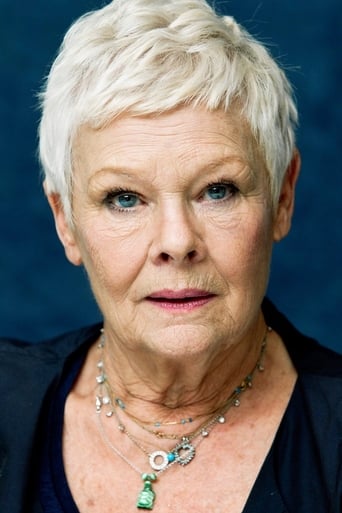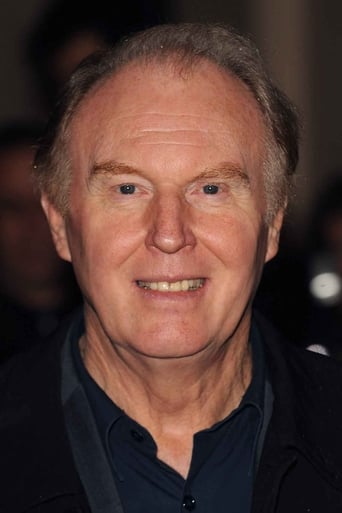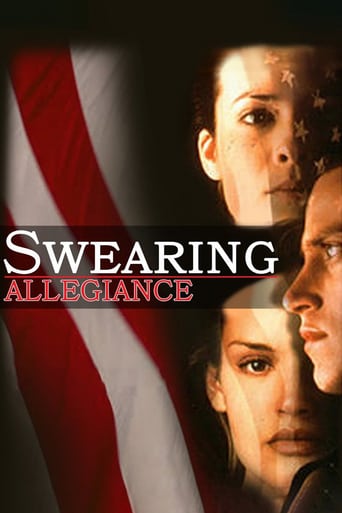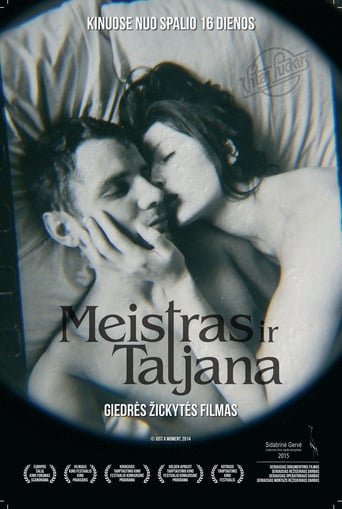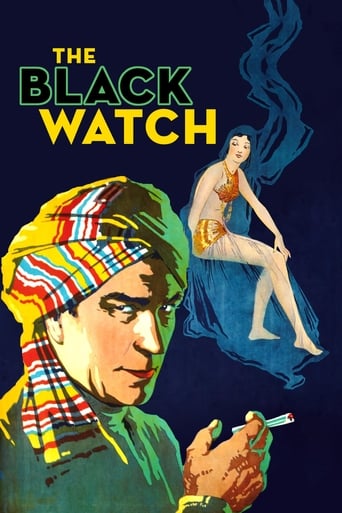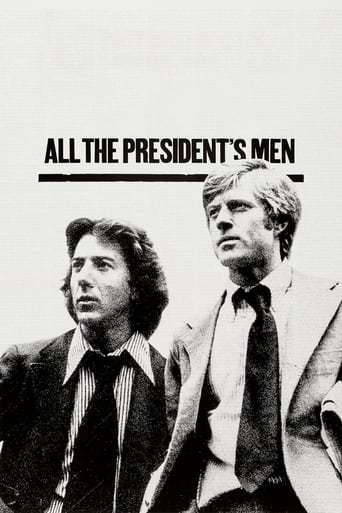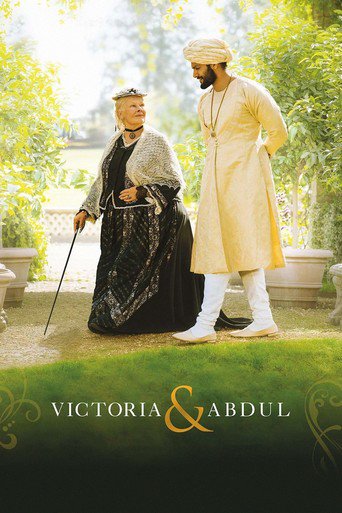
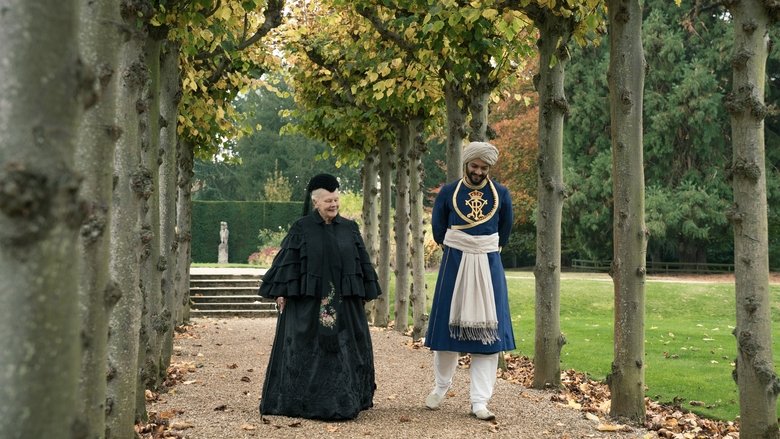
 Watch Now
Watch Now





Victoria & Abdul (2017)
 Watch Now
Watch Now





Queen Victoria strikes up an unlikely friendship with a young Indian clerk named Abdul Karim.
Watch Trailer
Cast


Similar titles
Reviews
You won't be disappointed!
Powerful
Absolutely brilliant
The movie's not perfect, but it sticks the landing of its message. It was engaging - thrilling at times - and I personally thought it was a great time.
I enjoyed the first half which although embellished was entertaining and intriguing. But half way through it turned into a woman and a Muslim as the good guys contrasted with the British establishment and an anti empire rant. But then it was produced by the BBC and Stephen Frears, both liberal, progressive anti white British men types. Boring!
Before Shrabani Basu's book of the same name, the story of the relationship between a Muslim Indian servant by the name of Abdul Karim and Queen Victoria, was basically lost to history. By chance while on a family trip to Victoria's holiday home, Osborne House, on the Isle of Wight, Basu noticed a painting of Abdul and wondered who he was. Her research led her to discovering Abdul's journal which was still in his family's hands since his death in 1909. Abdul, a low-level civil servant in the prison system, hailed from Agra, India. He was invited to Buckingham Palace to present a coin commemorating British rule over India, for Victoria's Golden Jubilee in 1887 along with a co-worker Mohammed, decidedly anti-British in his outlook. Abdul (portrayed as a gentle soul here) has no such objections to paying tribute to Victoria and is excited to be invited to the Palace. The courtiers instruct him to be obsequious when he meets Victoria and he is specifically told not to look directly at the Queen. He however defies their instructions and somehow Victoria takes notice of him. Before you know it, Victoria insists that Abdul remain at the Court as her "Munshi" (teacher). Much to the chagrin of her son Bertie (later to become King Edward) and the other stuffed shirts at the Palace, Abdul is revealed to be not a Hindu (as originally believed by those who invited Abdul to England), but actually a Muslim. Soon Abdul is teaching Victoria Urdu and passages from the Qur'an. When she finds out he's married, she has him bring his wife and mother-in-law to live at the Palace. The film succeeds on two fronts. First the deep-seated animosity of Victoria's family and friends toward Abdul leads to the central conflict in which Victoria's affection for her "Munshi" is directly challenged. At one point the entire staff threatens to resign over Victoria's declaration that she plans to have her confidant knighted. Underlying all of this is the implication that British society at the time was guilty of endemic racism. Victoria is held up as a model and champion of liberalism, willing to defend a "lowly servant," condemned by British society based on his perceived inferior station in life. Victoria may not have been completely a shining beacon, championing the downtrodden immigrants of her time, but her small gesture of friendship toward Abdul here suggests she was certainly much more progressive than many of her contemporaries. What's more, it's recorded in her writings that she was aware that Abdul may have been subject of "race prejudice," which (she writes) accounted for the outright hostility against him. More important is how the relationship helped Victoria in her old age, after she endured the death of her beloved husband years earlier, along with the friendship later on, with the Scottish manservant, John Brown. The gentle Abdul kept her engaged in the world after she withdrew due to the depression over the death of her husband. While Judi Dench is magnificent as a complex Victoria, Ali Fazal as Abdul is saddled by a script that puts the teacher on a pedestal and reduces him to a one-dimensional good guy. Abdul's dark side is suggested but never explored in detail. It makes sense that Victoria would become angry with him after relying on his account of the Indian mutiny of 1857 (in which hundreds of British troops were massacred by Muslims following a "fatwa" issued by a prominent Iman). Perhaps there needed to be some additional dialogue explaining Abdul's position-why he put that particular spin on the story that distorted what had actually occurred (could it have been that he was actually ignorant of the true facts of the massacre and was subject to the propaganda of his fellow Muslims back in India?). Another event also remained unexplored-this is when the Court physician reveals the saintly Abdul actually suffers from gonorrhea which accounted for the fact that his wife had no children. Again, Victoria ignores Abdul's potential dark side when she curtly orders her physician to heal him of his affliction. What does Abdul have to say about this development? We never find out. Finally, history tells us that Abdul actually campaigned to have himself knighted; the film suggests otherwise-that it was solely Victoria's idea. Had the film's scenarists chosen to depict events in this way, Abdul wouldn't have come off as such a goody two-shoes. Nonetheless, the denouement is sad. Following Victoria's death, Abdul was unceremoniously sent packing and all papers relating to his stay at Court, were burned upon orders of Victoria's son, the new King. Despite Abdul's shortcomings, the Royal Family failed to recognize that Abdul was actually good for Victoria, and helped her cope while she was undergoing a deep depression. In short, they should have "worked something out," but given the times, this was an impossibility. Director Stephen Frears does an excellent job sustaining our interest in a story that could have easily become lugubrious. The production design is excellent, aptly giving us a real feel for the times. More could have done with Abdul's character, but Judi Dench steals the show as a Queen who found meaning in life through a friendship with an unlikely confidant!
While the acting here is very fine, particularly that of Julie Dench as the old queen, the plot is weakened by two very contrary cliches around which the entire story revolves.First, the cliche, and all chiches are partly true or they would not have become cliches, first the notion that the British in the Victorian period were racist about colored people even though Britain had millions of them in their African and Indian possessions. The hostility towards Abdul the Muslim Indian companion of the old queen was shared by the royal family, especially by the future Edward VII (Bertie) and by the staff in the palace who took care of the queen's every need. They felt insulted by the presence of an Indian colored man in their neighborhood and tried to coerce the queen into letting him leave. The second cliche is that of the alleged immense philosophical wisdom and religious insight of the Indians, no matter how lowly their origins. The queen regards every word out of the mouth of Abdul as brilliant, philosophical, and worthy of deep respect. Of course the west has long been misled by the apparent religiosity of the Indians, but these were always Hindus not Muslims and Abdul is a Muslim. This become relevant later on in the plot, but the notion that Indian Muslims, the lowest of the low after the fall of the Mughal empire, were worthy of respect for their thought is ridiculous. So here we have the typical western attraction in the person of the queen for Indian thought. Yes, India is the most religious country in the world; it is also the most dirty, the most dismal, and the poorest. Sensible westerners do not stand awestruck by Indian thought, which is usually self-righteous and oblivious to the real faults of Indian culture. You can admire the Taj Mahal, as Abdul urges the queen to do, but there is much more to India than a couple of beautiful palaces. The story is interesting to be sure but the two major cliches make it in the end rather less than worthwhile. Edward VII comes off very badly; he was not a bad bloke, he just got tired of wating for the queen to die and for him to become king. Charles Prince of Wales today is in exactly the same position, but Queen Elizabeth is not foolish enough to become enamored of some Indian fellow with alleged wisdom. She is probably more queenly than Victoria.
This feels more like a fairy tale dream of an Indian guy who starts dreaming at the beginning of the film and wakes up towards the end rather than based on actual events which is almost confirmed by the "mostly" written along with based on real events caption at the beginning. Even though predictable the film manages to keep you entertained and is quite funny for the most part. Even though the plot or characters are not very interesting the situations are created in between which are quite funny and keeps a pleasant mood throughout. As I am trying to write anything, all I can really think about is the negative aspects which I want to defend although I enjoyed it a lot while watching.


